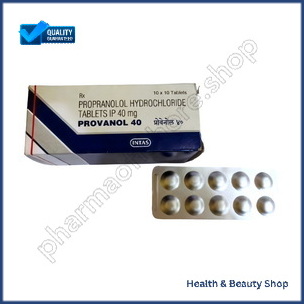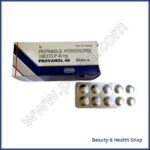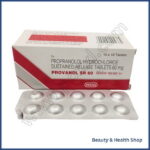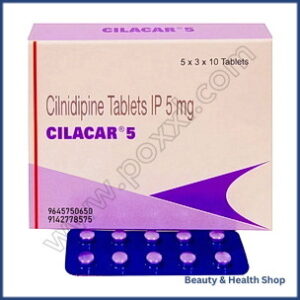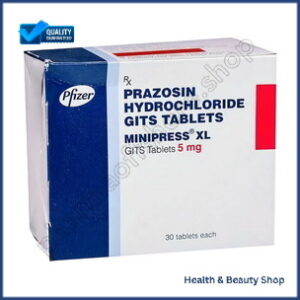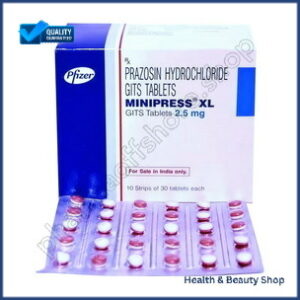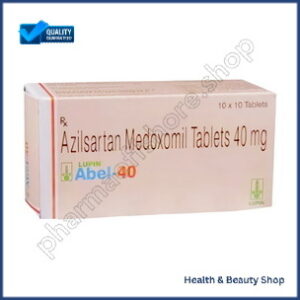ADDICTION
ALCOHOL DEPENDENCE
QUIT SMOKING
ALLERGY
ANTI FUNGAL
FUNGAL INFECTION
FUNGAL NAIL INFECTIONS
ANTI-REJECTION DRUGS
ANTI WORM
ANTIBIOTIC
BACTERIAL INFECTIONS
ARTHRITIS
GOUT
OSTEOARTHRITIS
RHEUMATOID ARTHRITIS
BLOOD
LOW PLATELET COUNT
THROMBOPHLEBITIS
VARICOSE VEINS
COLON
ANAL FISSURE
PILES
ULCERATIVE COLITIS
DIABETES CARE
DIABETES INSIPIDUS
DIABETES TYPE
DIABETIC FOOT ULCERS
GLUCOSE MONITOR
EYES/EAR CARE
DRY EYES
EYE CARE
EYE EXAMINATION
EYE INFECTION
EYE LASHES
EYE PAIN
GLAUCOMA
OCULAR HYPERTENSION
UVEITIS
FEVER CARE
MALARIA
RHEUMATIC FEVER
TYPHOID FEVER
GASTROINTESTINAL
ACIDITY
CONSTIPATION
CROHN'S DISEASE
DIARRHOEA
GALLBLADDER STONES
INTESTINAL ULCERS
IRRITABLE BOWEL SYNDROME
MOTION SICKNESS
NAUSEA
Propranolol (Generic)
Propranolol 40 mg (Generic)
Propranolol 60 mg (Generic)
| Active Ingredient (Generic Name): | Propranolol |
|---|---|
| Indication: | Chest pain (Angina), High blood pressure, Preventive treatment of migraine |
| Manufacturer: | Intas Pharmaceuticals Ltd |
| Packaging: | 10 tablets in one strip |
From: $41.00
Propranolol (Generic) is a beta-blocker medication that blocks adrenaline effects by targeting beta receptors. It effectively reduces heart rate, blood pressure, and heart workload, benefiting cardiovascular conditions, anxiety, and migraines. Prescribed for high blood pressure, anxiety, performance anxiety, and migraines, it helps manage physical anxiety symptoms and stage fright. Side effects like fatigue, dizziness, and gastrointestinal issues may occur. Guarantee proper storage at room temperature and seek medical help for overdose symptoms. Notify your doctor about all medications, existing conditions, and brand names. More information on usage and precautions is available.
Start by understanding the basic mechanism of action of propranolol. Propranolol is a type of medication known as a beta-blocker. It works by blocking the effects of adrenaline on your body, specifically by targeting beta receptors in various tissues. By doing so, propranolol helps to reduce heart rate, blood pressure, and the workload on the heart. This medication is commonly used to treat conditions such as high blood pressure, irregular heart rhythms, and chest pain.
When you take propranolol, it blocks the beta receptors in your heart, causing it to beat more slowly and with less force. This helps to lower blood pressure and reduce the strain on your heart. Additionally, propranolol can also be used to prevent migraines, reduce symptoms of anxiety, and manage the physical symptoms of performance anxiety. It’s important to follow your healthcare provider’s instructions carefully when taking propranolol to ensure its effectiveness and safety.
Propranolol’s Therapeutic Advantages
Propranolol offers significant therapeutic advantages in managing various cardiovascular conditions and alleviating symptoms of anxiety and migraines. This medication belongs to a class called beta-blockers, which work by blocking the action of certain natural chemicals in the body, such as adrenaline. By doing so, propranolol helps to reduce heart rate, blood pressure, and strain on the heart, making it effective in treating conditions like hypertension, angina, and arrhythmias.
Moreover, propranolol has been found to be beneficial in managing performance anxiety and stage fright due to its ability to control the physical symptoms associated with anxiety, such as trembling and rapid heartbeat. Additionally, propranolol is commonly prescribed for preventing migraines, as it can reduce the frequency and severity of these debilitating headaches.
Why is this medication prescribed?
Used primarily to treat various cardiovascular conditions and manage symptoms of anxiety and migraines, propranolol is a medication that offers significant therapeutic benefits.
For cardiovascular issues, propranolol is commonly prescribed to lower blood pressure and reduce the workload on the heart by blocking the effects of adrenaline. This can help in conditions such as hypertension, angina, and arrhythmias.
In cases of anxiety, propranolol is used to alleviate physical symptoms like trembling, sweating, and a racing heart, rather than the psychological aspects. It’s especially helpful for performance anxiety, like public speaking or stage fright.
Additionally, propranolol can be prescribed for migraines to prevent or reduce the frequency and intensity of these debilitating headaches. By targeting blood vessels in the brain, it can help manage migraines more effectively.
How should this medicine be used?
When taking this medication, it’s important to adhere to the prescribed dosage and frequency as directed by your healthcare provider. Propranolol is typically taken orally with or without food, usually 2 to 4 times daily or as prescribed by your doctor. It’s vital to take each dose at the same time daily to maintain consistent levels of the medication in your body.
Swallow the tablets whole with a glass of water, and don’t crush, chew, or break them unless advised by your healthcare provider. If you miss a dose, take it as soon as you remember, but if it’s almost time for your next dose, skip the missed one and continue with your regular dosing schedule. Don’t double up on doses to make up for a missed one.
It is essential to not abruptly stop taking propranolol without consulting your healthcare provider, as this can lead to withdrawal symptoms or an increase in blood pressure. Always follow your doctor’s instructions carefully when using this medication.
Other uses for this medicine
For additional purposes beyond its primary use, healthcare providers may prescribe propranolol to manage symptoms related to anxiety, migraines, or essential tremors. Propranolol, a beta-blocker, is commonly utilized off-label to alleviate symptoms of performance anxiety or social anxiety disorder. By blocking the effects of adrenaline, it can help reduce physical symptoms like trembling, sweating, and a racing heart, which are often associated with anxiety.
In the case of migraines, propranolol is sometimes recommended as a preventive treatment. It can help decrease the frequency and severity of migraine attacks by regulating blood flow in the brain. Additionally, propranolol may be prescribed to individuals with essential tremors, a neurological disorder characterized by involuntary shaking. The medication can help manage tremors by calming the overactive parts of the brain responsible for these movements.
It’s important to follow your healthcare provider’s guidance and dosage instructions when using propranolol for these alternative purposes.
What special precautions should I follow?
When taking propranolol, it’s important to monitor your heart rate regularly to make sure it stays within the recommended range.
This precaution helps track the medication’s effectiveness and reduces the risk of any potential complications.
Remember to follow your healthcare provider’s instructions closely to maintain a safe and effective treatment plan.
Check Your Heart Rate
Observing your heart rate regularly is crucial when taking Propranolol to guarantee your safety and well-being. To make sure you’re monitoring your heart rate effectively, remember these key points:
- Check your heart rate at the same time each day: Establishing a routine will help you track any changes consistently.
- Use a reliable heart rate monitor: Invest in a quality device to accurately measure your heart rate.
- Record your results: Keep a log of your heart rate readings to share with your healthcare provider during check-ups.
What special dietary instructions should I follow?
To maintain stable blood sugar levels while taking Propranolol, it’s recommended to avoid sudden changes in your diet. It’s important to maintain a consistent intake of carbohydrates throughout the day. Skipping meals or consuming large amounts of sugary foods can lead to fluctuations in blood sugar levels.
Focus on a balanced diet rich in fruits, vegetables, whole grains, and lean proteins. Limit your intake of foods high in saturated fats, sugar, and salt, as these can impact the effectiveness of Propranolol.
Additionally, be mindful of caffeine consumption as it may enhance the side effects of Propranolol. It’s advisable to spread your caffeine intake evenly throughout the day rather than consuming it all at once. Remember to stay hydrated by drinking an adequate amount of water daily.
Consulting with a healthcare provider or a nutritionist can provide personalized dietary recommendations tailored to your specific needs while taking Propranolol.
What should I do if I forget a dose?
If you forget to take a dose of Propranolol, take it as soon as you remember. However, if it’s almost time for your next scheduled dose, skip the missed dose and continue with your regular dosing schedule. Don’t take a double dose to guarantee the effectiveness of the medication. It’s important to maintain a consistent dosing routine to assure the effectiveness of the medication.
If you frequently forget to take your doses, consider setting a reminder on your phone or using a pill organizer to help you stay on track. You can also ask a family member or caregiver to remind you when it’s time to take your medication.
If you have missed several doses and are unsure about what to do, contact your healthcare provider for guidance. They can provide specific instructions based on your individual situation. It’s essential to follow their advice to ensure the safe and effective use of Propranolol.
What side effects can this medication cause?
Propranolol may cause various side effects, some of which can be serious.
If you notice any persistent or worsening symptoms, it’s important to contact your doctor promptly.
Certain side effects require immediate medical attention to guarantee your well-being.
Persistent or Worsening Side Effects
Persistent or worsening side effects of this medication may include fatigue, dizziness, and gastrointestinal issues.
- Fatigue: You might feel more tired than usual, affecting your daily activities.
- Dizziness: Some individuals experience dizziness or lightheadedness, especially when standing up quickly.
- Gastrointestinal Issues: This can manifest as stomach pain, nausea, or diarrhea.
If you notice any of these side effects becoming troublesome or lasting for an extended period, it’s essential to inform your healthcare provider. They can provide guidance on managing these symptoms or adjust your treatment plan accordingly. Remember, always consult your doctor before making any decisions regarding your medication.
Some side effects can be serious. If you experience any of the following symptoms, call your doctor immediately:
Serious side effects may arise with this medication, warranting immediate contact with your doctor if you experience specific symptoms. Some of the side effects that require urgent medical attention include:
- Vital: This can manifest as shortness of breath or wheezing.
- Abnormal heartbeat or chest pain: If you notice a rapid or pounding heartbeat or experience chest discomfort.
- Indications of a severe allergic reaction: Such as rash, itching/swelling (especially of the face/tongue/throat), severe dizziness, or trouble breathing.
If you encounter any of these symptoms while taking propranolol, it’s vital to seek medical assistance promptly for proper evaluation and management.
What should I know about the storage and disposal of this medication?
Wondering how to properly store and dispose of this medication? Propranolol should be stored at room temperature away from light and moisture. Avoid guaranteeing it to extreme heat or cold, such as in the bathroom or refrigerator. Keep the medication out of reach of children and pets to prevent accidental ingestion.
When it comes to disposing of unused or expired propranolol, it’s important to do so safely. Don’t flush medications down the toilet or pour them into a drain unless instructed to do so. Instead, consult with your pharmacist or local waste disposal company on how to properly dispose of the medication. They may have specific guidelines for medication disposal to assure it’s done in an environmentally friendly and safe manner.
In case of an emergency/overdose
In case of an emergency or overdose with propranolol, seek immediate medical assistance by contacting your healthcare provider or local emergency services. Symptoms of a propranolol overdose may include difficulty breathing, fainting, dizziness, confusion, and a slow heart rate. It’s vital to act swiftly in such situations to prevent any potential complications.
When seeking medical help, be prepared to provide information such as the amount of propranolol taken, the time of ingestion, and any symptoms experienced. Don’t attempt to induce vomiting unless instructed by a healthcare professional. Emergency responders and healthcare providers will be able to assess the situation and provide appropriate treatment.
Do not delay seeking help in the event of a propranolol emergency or overdose. Prompt medical attention is essential to guarantee your safety and well-being. Remember, it’s always better to err on the side of caution and seek assistance immediately. Your health is of utmost importance, and timely intervention can make a significant difference in the outcome.
What other information should I know?
After addressing what to do in case of an emergency or overdose with propranolol, it’s important to understand other essential information regarding this medication.
Propranolol may cause dizziness or drowsiness, so it’s advisable to avoid driving or operating machinery until you know how this medication affects you. Additionally, alcohol consumption should be limited as it can enhance these side effects.
It’s vital to inform your healthcare provider about any existing medical conditions, especially asthma, diabetes, or heart problems, as propranolol may interact with these conditions. Monitoring your blood pressure regularly is essential while taking propranolol, as it can lower blood pressure levels.
Abruptly stopping propranolol isn’t recommended, as it can lead to adverse effects. If you’re undergoing surgery, inform your healthcare provider about your propranolol use, as adjustments may be necessary. Finally, remember to store propranolol at room temperature away from moisture and heat.
Brand names
You may commonly find propranolol sold under different brand names. These brand names are created by pharmaceutical companies that manufacture and market the medication. Here are some common brand names of propranolol:
| Brand Name | Active Ingredient |
|---|---|
| Inderal | Propranolol |
| Inderal LA | Propranolol |
| InnoPran XL | Propranolol |
| Hemangeol | Propranolol |
Each of these brand names contains the active ingredient propranolol, which is the main component responsible for the medication’s effects. Please note that while the brand names may differ, the active ingredient remains the same. When prescribed propranolol, your healthcare provider will specify the brand name or generic version to make certain you receive the appropriate medication. Be sure to follow your healthcare provider’s instructions regarding the brand name of propranolol prescribed to you.
Purchase From Authorized Pharmacies
To guarantee the authenticity and quality of your propranolol medication, make sure to purchase it from authorized pharmacies. Authorized pharmacies are licensed to sell prescription medications and adhere to strict regulations to ensure the safety and efficacy of the products they dispense. When you buy propranolol from authorized pharmacies, you can trust that you’re receiving the correct medication in the proper dosage strength. These pharmacies source their medications directly from reputable manufacturers, reducing the risk of counterfeit or substandard products.
Furthermore, purchasing propranolol from authorized pharmacies gives you access to pharmacists who can provide valuable information and guidance on how to take the medication correctly. They can also address any concerns or questions you may have about propranolol and its potential side effects. By choosing authorized pharmacies for your propranolol needs, you’re prioritizing your health and well-being by ensuring that you receive a genuine and effective medication.
To summarise
In wrapping up the discussion on the topic, consider the key points about propranolol and its importance.
Propranolol, a beta-blocker medication, is commonly used to treat conditions like high blood pressure, heart rhythm disorders, and anxiety. It works by blocking the effects of adrenaline, which helps to lower heart rate and blood pressure. Propranolol is also used off-label for performance anxiety, migraines, and even to reduce symptoms of PTSD.
It’s vital to take propranolol as prescribed by your healthcare provider to guarantee its effectiveness and reduce the risk of side effects. While generally well-tolerated, common side effects may include fatigue, dizziness, and cold extremities.
It’s crucial to be aware of potential interactions with other medications, so always inform your doctor about all the medicines you’re taking.


